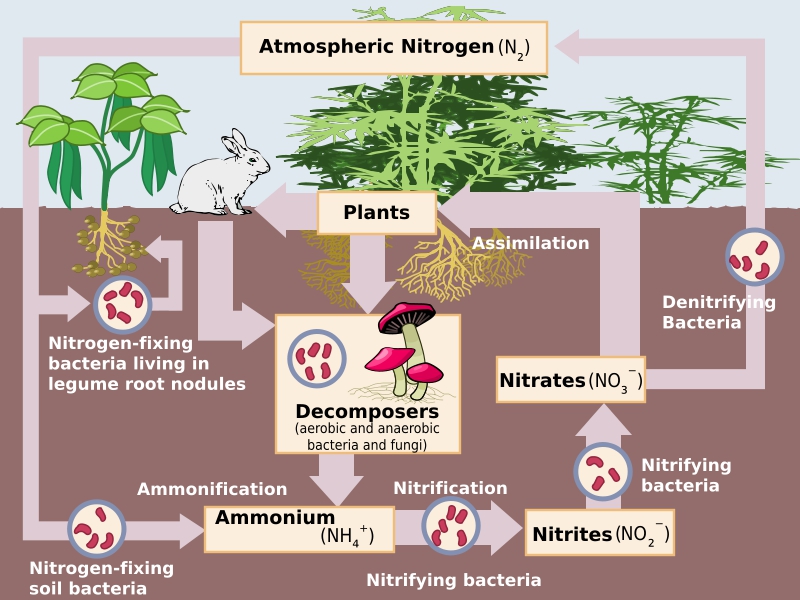
Composting is an aerobic process (Oxygen needs to be present) by bacteria and other micro-organisms that breaks down any type of organic waste into soil. To work properly, the right quantities and proportions of Nitrogen, Carbone and Oxygen need to be provided, and as a result you obtain a rich, safe and fully mature soil that can be used without any further mix for potting, agriculture and gardening.
The most important change triggered by composting is the transformation of Nitrogen into different molecules, in order:
Mature compost is chemically stable and is recognized as an exceptional soil fertilizer and conditioner of great use for improving soil water retention and prevent desertification.

Dehydrating the waste (ie. drying the waste using heat), rotting by anaerobic bacteria (No need of oxygen to be present) or any other process than doesn’t produce a chemically stable and ready to use compost.
Many systems claim to do compost, but mainly just remove the water in the waste without properly breaking down the Nitrogen molecules in it. These systems are very energy hungry as they need to heat the waste for evaporating the water in it, and obtain as a result a product rich in Ammonium (NH4+), a compound involved in water pollution, acid rain and smog. This so called "compost" invariably requires further processing before being safe for agricultural use or disposal.
Before choosing a technology for treating your organic waste get all the facts straight and request an analysis report on the end product obtained that you can compare to your local Compost Quality Standards.
Our composters produce high quality compost that conforms to European, US and Hong Kong Compost Quality Standards.
The compost obtained by our systems complies with the strict chemical and hygienic compost requirements for organic farming.